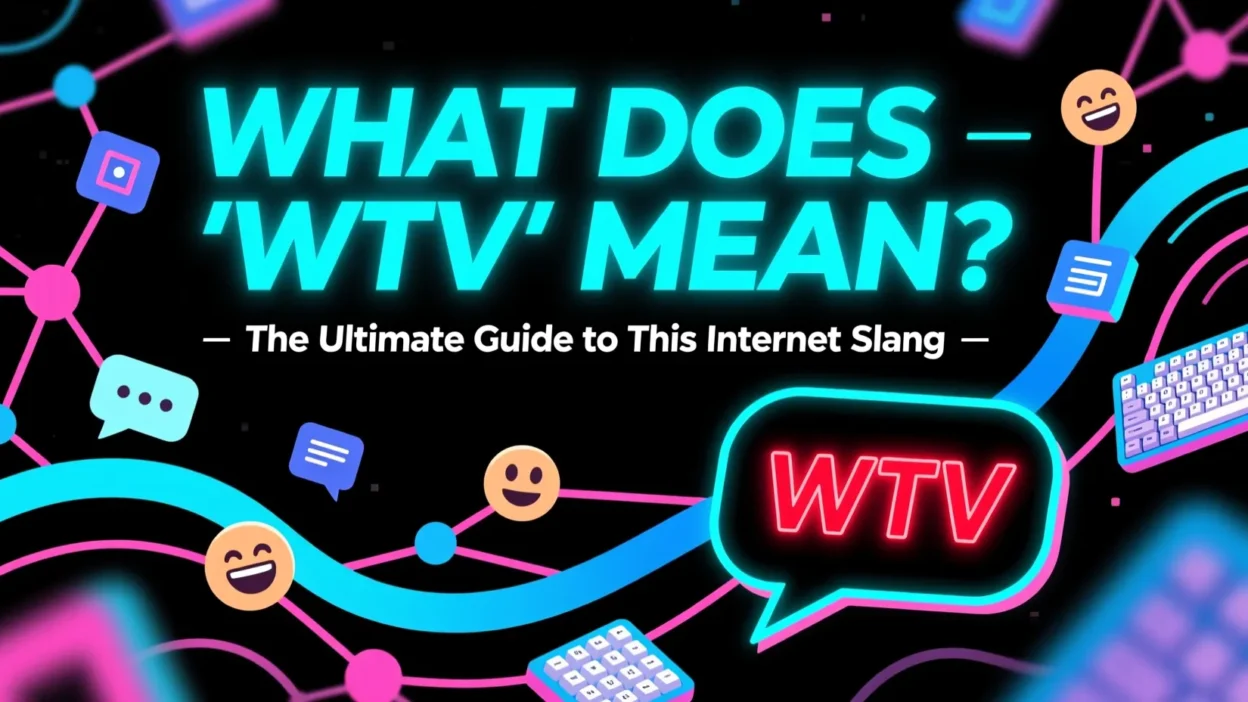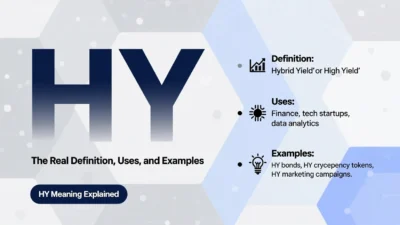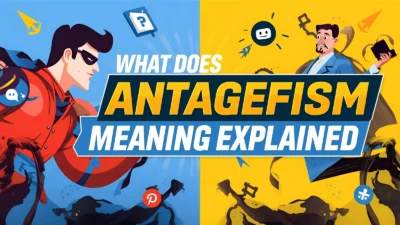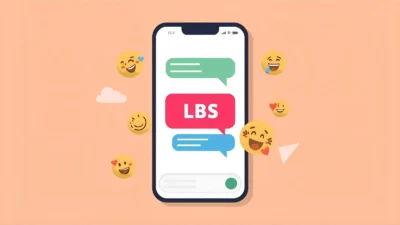You’ve probably seen “WTV” pop up in texts, TikTok comments, or group chats and wondered, what does that mean? In today’s fast-paced online conversations, abbreviations help us communicate faster—but they can also confuse those who aren’t familiar with digital slang.
Let’s break down what WTV means, where it comes from, and how you can use it naturally (without sounding dismissive or rude).
The Meaning of “WTV”
WTV is short for “whatever.” It’s used to express indifference, flexibility, or sometimes dismissal. The meaning depends on context and tone.
- Neutral/Flexible: “I’m okay with any option.”
- Dismissive: “I don’t care.”
- Agreeable: “Whatever works for you.”
In short, “WTV” is a convenient abbreviation used mainly in texting and social media to save time or convey a casual vibe.
Origins and Rise of “WTV”
The abbreviation WTV emerged naturally from the rise of text messaging and instant chat culture in the early 2000s. As platforms like MSN Messenger, AIM, and later WhatsApp and Snapchat encouraged shorter communication, users began shortening long words like “whatever” to just “WTV.”
“Whatever” itself became famous in pop culture during the 1990s—especially after the movie Clueless popularized the eye-rolling hand gesture that said “whatever.” That same attitude carried over into online slang, where “WTV” became a written form of the same laid-back, sometimes dismissive expression.
How “WTV” Is Used Today
Context matters a lot when it comes to interpreting WTV. Here are its main tones and examples to help you understand how it’s used:
| Tone | Meaning | Example |
|---|---|---|
| Neutral/Agreeable | “I don’t have a preference.” | Friend: “Do you want pizza or tacos?” You: “WTV, both sound good.” |
| Dismissive/Irritated | “I don’t care; end of conversation.” | Person A: “You never help me out.” Person B: “WTV.” |
| Relaxed/Playful | Used jokingly to show indifference without being rude. | Friend: “You’re always late!” You: “WTV, at least I showed up 😄.” |
| Flexible/Supportive | Open-minded or accommodating tone. | Teammate: “Should we try plan A or B?” You: “WTV, whatever helps us finish faster.” |
Alternate Meanings of “WTV”
While “whatever” is the most common definition, WTV can also stand for other things depending on context. Here are a few alternate interpretations:
- What’s The Vibe? – Used to ask about the mood or situation (“WTV tonight?”).
- What’s The Verdict? – A fun way to ask for someone’s decision or opinion.
- Windows Recorded TV Show (.wtv) – A file format used in Microsoft Media Center.
- We The Villains / Watch The Video – Rare niche meanings used in gaming or music groups.
However, if you see WTV in a text message or social media comment, it almost always means “whatever.”
Tone and Interpretation
The same three letters can express very different emotions. Here’s why tone matters:
- Positive: When used in friendly contexts, it means “I’m cool with anything.”
- Negative: In arguments, it can sound cold or dismissive, almost like saying “I don’t care.”
- Neutral: When used with emojis or in lighthearted messages, it keeps the mood casual.
Tip:
Avoid using “WTV” in serious conversations—it might sound disrespectful even if that’s not your intent. When in doubt, write the full word “whatever” or clarify your tone.
When to Use (and Not Use) “WTV”
✅ Use it when:
- Chatting casually with friends or peers.
- You truly don’t have a strong preference.
- You want to sound laid-back or easygoing.
❌ Avoid it when:
- Talking to a boss, teacher, or client (too informal).
- Discussing emotional or serious topics (can seem dismissive).
- You’re unsure how your tone might be received.
Similar Slang Terms and Abbreviations
If you’re trying to understand internet slang better, here are a few related abbreviations that convey similar vibes:
| Abbreviation | Meaning | Similar Usage |
|---|---|---|
| IDC | I don’t care | Expressing indifference |
| IDK | I don’t know | Casual uncertainty |
| TBH | To be honest | Used to preface opinions |
| SMH | Shaking my head | Disapproval or disbelief |
| FR | For real | Emphasizing honesty or truth |
| NVM | Never mind | Dismissing or ending a topic |
Common Mistakes When Using “WTV”
- Using it in formal settings: Avoid it in emails or workplace chats—it can look careless.
- Sending it alone: A single “WTV” might sound angry. Add context or an emoji if you mean it casually (e.g., “WTV 😅”).
- Misinterpreting tone: If someone replies “WTV” mid-argument, they’re likely annoyed—not neutral.
- Overusing it: Using it too often can make you sound uninterested or passive.
Cultural and Generational Usage
- Teens and Gen Z: Use “WTV” frequently on Snapchat, TikTok, and text to signal casual disinterest or flexibility.
- Millennials: May use it, but prefer “whatever” spelled out.
- Older generations: Often unfamiliar with the abbreviation and may misread it as sarcastic or rude.
This shows how slang evolves and how each generation adapts it differently based on communication habits and digital culture.
WTV vs. “Whatever” – What’s the Difference?
| Feature | “WTV” | “Whatever” |
|---|---|---|
| Tone | More casual, digital slang | Can be neutral or emotional |
| Formality | Informal | Works in both casual and semi-formal speech |
| Usage | Text, chat, memes | Speech, writing, texting |
| Length | 3 letters, faster | Full word, clearer meaning |
| Potential Misunderstanding | High | Lower |
So while they mean the same thing, “whatever” is safer in mixed or serious conversations, whereas “WTV” belongs firmly in casual texting culture.
Examples in Conversations
Example 1 – Friendly Chat
A: Wanna watch a movie or play games?
B: WTV, I’m good with either.
Example 2 – Disagreement
A: You said you’d call me back.
B: WTV, I’m busy right now.
(Sounds dismissive or irritated)
Example 3 – Neutral Tone
A: Dinner or coffee tomorrow?
B: WTV works for me 😊.
Conclusion
“WTV” may be just three letters, but it carries plenty of meaning depending on how it’s used. Usually, it stands for “whatever”, expressing flexibility or indifference. But tone matters—a friendly “WTV 😄” can mean “I’m easy,” while a curt “WTV.” can shut down a conversation.
Use it casually with friends, avoid it in formal chats, and always read the room before hitting send. Language keeps evolving, and abbreviations like WTV remind us that even short forms can speak volumes in digital communication.

Robat Hood is a creative writer and contributor at Saypadia, focused on explaining trending words, slang, and cultural phrases in a simple and engaging way. With a sharp eye for modern language trends, Robat aims to make Saypadia a trusted place for understanding how words are used online and in daily conversations. His content is informative, approachable, and designed for readers of all levels.




